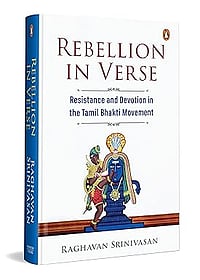Alejandro González Iñárritu, a Mexican film director, collaborated with Fox Searchlight Pictures, and created one of the finest dark comedies of all time, ‘The Birdman’. The film opened a new dimension for cinematographers working on having sensory variations using a fixed camera (the fantasy land of Kubrick). Emmanuel Lubezki’s proposal to do it is the highlight reel of the product. It does take us to a different artist named Andrew Hurley, who collaborated with Jorge Luis Borges to translate his astounding short stories for the world outside Argentina. ‘Collected Fictions’ is the best example to understand the processing and importance of worthy collaborative projects.
When ‘Centre for Stories’, a project funded by the West Australian Department of Local Government, Sport and Cultural Industries, collaborated with Red River, the fantasy to see the union of production worlds in the field of literature metamorphosed into a reality. The result gave an abode to four major poets, with four different projects, and a unified vision towards a new kind of poetry. The presence of its cult following, amidst publishers/production companies, who bully and bury artists is deeply saddening. Yet at the same time, the deep care of those who took the responsibility to shower love upon these beautiful poets/projects is a glimmer of hope. The hope that makes writers write even under worst conditions.
FLOW
It is not quite usual to have a Chinese poet under the wing of an Indian publisher. We have stopped believing in coexistence for the things, information, and people we feed upon. So, a proper restriction was issued against artists of Pakistan to violate their individual choice, and then subsequently eliminate them from the free space of art. Indian media propagated the same kind of toxicity against the people of China using a general perspective. Luoyang Chen’s book ‘Flow’, therefore, represents collaboration as well as the perfect form of solidarity towards humanity. To have acceptance amidst constant repression of democracy is the portrayal of compassion.
“Flow’s stuck in here, this kitchen
with modern equipment, this electrical appliance
peeling clauses, cutting
verbs, articles and nouns, mixing
with adjectives and adverbs, wrapping
in tinfoil.”
The beauty of the verse lies in finding the intimacy between the artist and his/her art. Sticky frost. Falling pollen grains. Hibernating thoughts. Everything happens to be a part of a larger version of our smaller or finite identity. Cooking the best kind of poem demands the marriage between Blake and Bourdain. The constancy of an anxious mind is to fall in love with the noise. So, in a stanza of the poem, the poet writes: ‘Flow knows the word is tasteless, but sometimes he takes some Xanax’. Yellow patches. Weak follicles. Rootless existence. Luoyang delivers a poem of a malignant condition through the construction of a piece where the idea grows like a tree of taste.
“Hatred is a continuity. ‘I hate you’. Said once, said
Twice. Quadruple it. In the name of. Name it. Revolution.
Is, call it a different name. Actually, what did you do? What
Did you actually do? Language does, of course. Look.”
The poet portrays Flow as a person who has been stabbed by ideas and actions. In a jailed room, one idea stays alive, and it rules like a reptile. Crawls to find our spine to either break it or to just enjoy its ruins. Every country is presently going through a mild or strong dictatorship. A person or group of individuals stands against it. We call their approach as the ‘much-needed revolution’. It should not be surprising that today’s revolution is definitely going to be the dictatorship of tomorrow. Luoyang poetry is going to offend those who believe that they are intellectuals and primary organs of revolution. The book is a way towards accepting kindness and rejecting all forms of hatred, irrespective of moral weakness. It does not bend or lean. It keeps on growing.
BURNT TONGUE
The unique torment that a poem brings is a beautiful form of scar. We do not have poets who slash the regularity, making it bleed and watch the reflection of a poem that has no twin. Daley Rangi’s debut book ‘Burnt Tongue’ is the book the world of poetry needs, but does not deserve. It has been written to dismantle the way readers go for a poem. He wants our time – the book forces us to stay with it even if we do not want to for the labour of reading it asks for, unapologetically. Daley, being an anti-disciplinary artist, gives birth to bodies, patterns, and prisms.
“regret is far too weak to hold my skin together; far too infectious and thick
rather, these countless scars are sutured with strands of silken love
masterfully spun by those caring hands and careful hearts
holding mine; teaching each to weave for others.”
To be against the kind of regular normalcy, uniform understanding, one has to have the courage to accept weakness and strength as two parts of the same body. Regret is a parasite. It feeds on our gratitude, abilities, and intellect. Simultaneously, it takes pleasure in making us feel bitter about the only life we have with us. The poet has gone through the phase. Healing is a procedure through which we get to know about love and just love. The emotions associated with it could be detrimental since they have certain conditions. But love, in its wholesome form, does not succumb to anything (not even God), and keeps on weaving the atoms of the battles we fight every day.
“I don’t owe you a place in my bed. I don’t you my anxiety, or the plural thereof’.
I don’t owe you the login for my Netflix account.
I don’t owe you a band aid for your wound.
I don’t owe you an explanation of my disability.
I don’t owe you the history of my being.”
To have no strings attached is not only associated with sex, or any physical activity. Rather to have the courage to cut the strings that tie us to the inflated sadness opens up our possibilities. In strong winters, where our innocence is scraped, we feel the necessity of justification and acclamation. It can be said that the dopamine pushes us to have greed for the latter. The praying mantis operates independently, for food – shelter – and even copulation. Daley’s poem deals with a crack that is in the process of getting sealed, not by any external process. Rather the internal realization of the need to let go of everything that forces us to dig a grave for the self is a primary necessity.
Daley Rangi’s book of poetry is where country music gets married to Pūoro Māori. The book blends with Humperdinck’s song ‘Ten Guitars’, in which the artist writes: ‘I have a band of men and all they do is play for me/They come from miles around to hear them play a melody’. Māori tribe finally has one universal home – with a fertile lawn – and a hundred thousand people.
LAKESONG
By diversifying the mind while riding a metro, or by fulfilling the stomach without any company, human civilization comes across the draft of a poem. It is not a lonely remark to say that poetry is the only form of literary art where only the poet has the truth – others are always walking on a different lane with their own fictional adaptations. Lakshmi Kanchi’s (SoulReserve) book ‘Lakesong’ documents the minute moments and gargantuan silhouette of our minuscule appearances to branch through the tandem of time. The poet’s time. The reader’s time. And the time that belongs to the purpose of the poems. It isn’t a void. It is a fertilized bubble.
“You aren’t man or woman. You are a shape
a nobody, a third-class rider on the train
from Pune to Mumbai. You aren’t rich or poor,
a nobody, a third-class rider on the train
who knows to sway
and to sleep with eyes open.”
The verse belongs to a poem named, ‘The Third-Class Rider’, in which the rider’s adjustments mirror the ride as well as those who are deciphering ways to compromise in their daily life. Apathy towards observation kills our stay. The poet, therefore, bridges the present state of the rider to the existential symptoms of people, in general. To steal an opportunity from someone else is the basic trait of a human being in a competitive world. When Lakshmi asks the rider to keep her eyes open, she is simply persuading her to do this since someone may rob her wallet or her father’s watch. The same happens with stolen opportunities – to keep them with us – one must have open eyes.
“With my hollow shaped by secret chambers where
endless patterns are at play. My cells soft with worry. My nooks
designed for brooding. These places of healing inside me – I crave.
And yet, all is still.”
The voice of the voiceless ones greets the physical world with thoughts that come out as subtexts. Therefore, in the poem, ‘When the Bees Left’, the hive or home talks about itself – how it preserves memories, shows grief, and keeps on watering its vision. Home is a place where healing happens. It is also the only physical entity that shows patience in our absence – and then waits to feel our presence. Like a human being, a house understands emptiness, how the living beings residing in it are busy overshadowing each other.
Lakshmi Kanchi delivers us a once-in-a-lifetime book of poems on nature, the body of belonging and a love that’s kind. The debut book breathes the dirt and sweetness around us – what poetry should do – to then leave its imprints for the future to know what happened today.
WE NEED TO TALK
Amidst roaring nationalism and downpouring statements against violence, the narrative through which nothing is said is often considered wise. Sometimes it is. Most of the time, it is not. The summation of degrading references comes out of people who are woke and have alternatives to slip through troubling times leaving others alone. The loneliness of a protesting voice is more dysfunctional than during a general situation. It becomes prominent when the tranquillity of extremism (which is mostly quoted as pride or ownership), sodomises the beauty of language.
Manveen writes about it, and says:
“I have relinquished
my mother tongue,
but love is a
universal language
and if I can speak it fluently,
why does it matter
if I stutter in Punjabi?”
Familial abuse is familiarly unfamiliar – especially when it grows with a strong protection of shame. Peeling the protective layer is tough around people who have put their faith in its structural assemblance. Being a worthy opponent of its practice is a gargantuan task. We do not get the chance to culture good perforations to free ourselves from the trauma associated with it. Manveen delivers a strong statement through a poem wherein the dilution of the feeling of victimhood is a strong possibility. Even then she keeps the vulnerability alive to let others resonate with the piece.
She writes:
“The man funding
my therapy
was the
very reason
I needed it.”
People think it is quite brave to write against the crimes of our closest ones. But the bravery exists to equate a different theorem wherein the society happens to be the core. Therefore, the poet wipes the blurriness – magnifies the wounds – and makes us visualize rotten extensions on the corpse of our most valuable possession, trust. So, when she says to her father, ‘…writing about you isn’t cathartic. It is self-harm’, the cries of a plucked flower get louder. The tyranny against pain takes a lot out of us, even then, the tight grip around our soul shouldn’t make us breathe less.
Manveen writes:
“…so, I will stop here
because writing about you
is like returning
to war while
still having PTSD.”
‘We Need to Talk’ is divided into eight portions – each has the same world perceiving the cosmos of chaos, unapologetically. The permanence of a voice weaves multiple issues into one single poem, to not divide even the strength she conveys. Her poems are not layered or boiled in the presence of metaphors. To modify and embroider a simple thing has always ruined the best outcomes. Manveen Kohli’s debut book likes to get wet in the rain and dries itself up amidst her readers. The only thing a writer wishes for, even around dying humanity and fading visionaries.






















